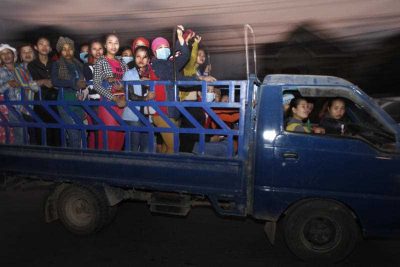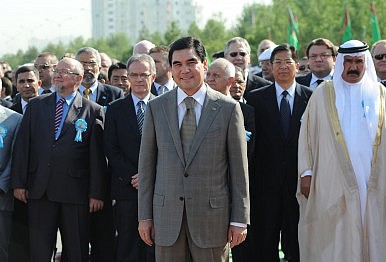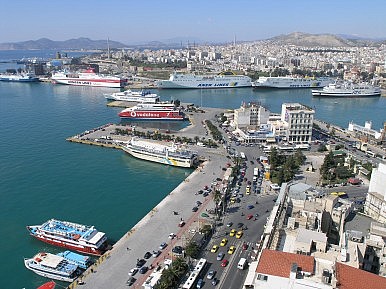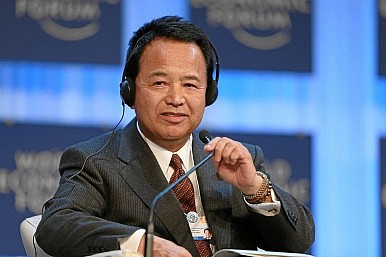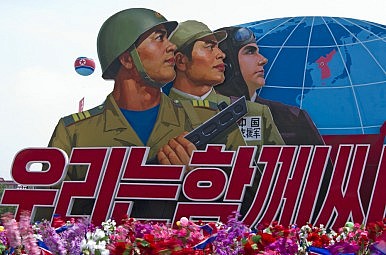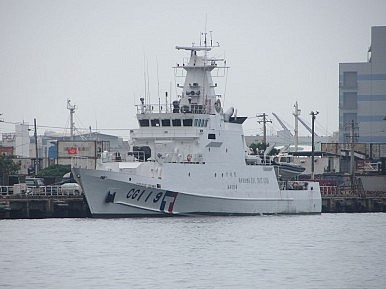It all started with a flag. Chou Tzuyu, a 16-year-old member of the rookie K-pop girl group Twice, appeared on an online show called “
My Little Television“ with her bandmates.
During the show, three of the girls, who are from Japan, were seen waving a Korean flag along with a Japanese flag to show their nationality. At the same time, Tzuyu was waving a Korean flag together with the flag of the Republic of China (Taiwan).
On January 8, shortly after the segment aired, famous Taiwanese singer Huang An took to Weibo, accusing the girl of being an independence supporter. Huang, who opposes Taiwanese independence,
later deleted all messages and photos from his account, but the damage had been done.
Huawei suspended their partnership with Tzuyu, who had been a spokesperson for their Huawei Y6 phone in Korea through a domestic company. In the meantime, JYP, the entertainment company behind Twice, has seen a “Boycott JYP”
campaign rack up tens of millions of hits, and the company’s stock has experienced a 5 percent dip.
In an effort to quell the controversy, JYP announced its singers would not attend any Chinese New Year broadcasts, and that Twice’s activities in China would be indefinitely suspended. “JYP is a company in the cultural business, not a company with a political position. Considering Tzuyu is only 16 years old and her education, she is not at the age where she can act with a political motive,” the company
posted on Weibo. “Because people are saying we are hostile toward China, our partners in China are experiencing difficulty with work related business and duties. Until the truth is revealed, we will halt Chinese activities.”
Two days later, JYP
uploaded a video on its YouTube channel showing Tzuyu in a plain black turtleneck, somberly reading from a prepared text in Chinese. “There is only one China… I have always felt proud of being Chinese,” she read, saying she had “hurt the company and the feelings of netizens on both sides of the Taiwan Strait due to my inappropriate words and actions during activities abroad. I feel very, very sorry and guilty” and bowing deeply. The company even went so far as to edit
the group’s website, changing Tzuyu’s biography from “Nationality: Taiwanese” to “Birthplace: Taiwan” and then again to “Birthplace: China, Taiwan” (the company’s site is still down after allegedly being hacked during the controversy).
But rather than dampening the controversy, these responses only served to anger the Taiwanese public, who started rallying behind the singer and condemning the company that forced her to apologize for her nationality.
The backlash in Taiwan gained so much momentum, even Taiwanese presidential candidates showed their support in the last few days of the election. In her victory speech on January 16, president-elect Tsing Ing-wen
referred to the issue, saying, “This particular incident will serve as a constant reminder to me about the importance of our country’s strength and unity to those outside our borders. This will be one of the most important responsibilities for me as the next president of the Republic of China.”
Meanwhile, Taiwanese human rights lawyer George Wang
filed a lawsuit against both Huang An, Tzuyu’s original accuser, and JYP, saying that they pressured the girl to apologize for something she shouldn’t have to apologize for – her nationality.
For years, South Korea has proudly touted the international success of its music industry. There is even a term coined to describe the popularity of Korean pop culture abroad –
Hallyu, or “Korean Wave.” In recent years, Korean entertainment companies have tried to build on this success with localization techniques – releasing albums in different languages and recruiting stars from different countries to be part of ultra-popular girl groups and boy bands. But when pop stars cross borders, they’re bound to run into some sensitivities.
Tzuyu is not the first star to become tangled in a diplomatic controversy. In 2012, singer/actor Choi Siwon retweeted a post from the Blue House that read, “Dokdo is our true territory and it is a place of value that must be protected with our lives. Let’s protect it with pride – at Dokdo,”
causing a significant backlash from Japanese netizens. In a similar vein, actress Kim Tae-Hee
sparked outrage in Japan when she was cast in a Japanese soap opera in 2011, despite having served as an activist for the Dokdo movement in Korea in the past.
This is not a phenomenon unique to K-pop: Katy Perry became embroiled in a
very similar controversy in 2015 when she wore a Republic of China flag as a cape while on stage in Taipei. And actress Kristin Stewart
raised eyebrows when she arrived at Incheon Airport in Korea wearing a shirt emblazoned with the rising sun symbol.
Despite these setbacks, however, Hallyu is still credited with creating a positive image of Korea around the world. Fans of Korean pop culture are credited with a huge boom in tourism over the past decade, and the Korea Foundation for International Culture Exchange
estimated in 2010 that the economic benefits from the surge in Korean pop exports was 5 trillion won (about $4.3 billion), with fans buying clothing, makeup, and even
food because of their favorite stars.
But with this success, the risk of a backlash rises. Especially with this new localization trend, Korean entertainment companies need to be aware of the potential pitfalls their stars may encounter. The key is to be one step ahead and train their stars – young as they may be – to avoid causing offense. And, perhaps more importantly, the company must be prepared to react when they run into such disputes. In this case, coming as it did right before major elections in Taiwan, the controversy was likely more about cross-strait politics than about a 16-year-old singer. But that doesn’t mean this confrontation was inevitable.
“The world is getting smaller and smaller. There are many foreign entertainers active in Korea now and the hallyu market has expanded in size, around the globe,” said culture critic Bae Kook-nam
told The Korea Times. “Not studying enough about world history and culture has caused such a big controversy. It should not end here and the entertainment industry needs to study the culture and emotions of where hallyu is popular.”
Jenna Gibson is the Director of Communications at The Korea Economic Institute of America. She runs KEI’s media relations and outreach along with managing KEI’s online presence. Follow Jenna on Twitter at @jennargibson.

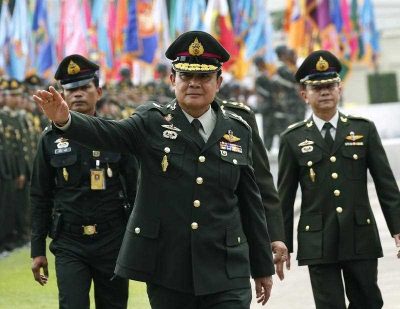
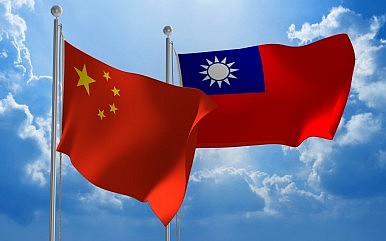
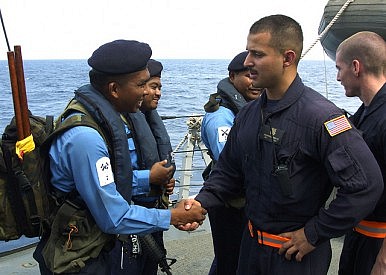












![Netanyahu has spent a political lifetime working to keep the West Bank under effective Israeli control and to reducing the power of Palestinians over it, writes Aronson [Reuters]](http://www.aljazeera.com/mritems/imagecache/mbdxxlarge/mritems/Images/2015/11/26/ed07d1b0b478485eac8f64c41e30428c_18.jpg)
![In Liberia, the outbreak sent half the heads of households out of work, while women were among the hardest-hit, writes Soyombo [EPA]](http://www.aljazeera.com/mritems/imagecache/mbdxxlarge/mritems/Images/2016/1/14/98d5e106b5b746a48e5c9b0f3ad89414_18.jpg)
![US Secretary of State John Kerry with Chinese President Xi Jinping in Beijing [AP]](http://www.aljazeera.com/mritems/imagecache/mbdxxlarge/mritems/Images/2016/1/28/c57b60dc392345308bab64126d402f45_18.jpg)







